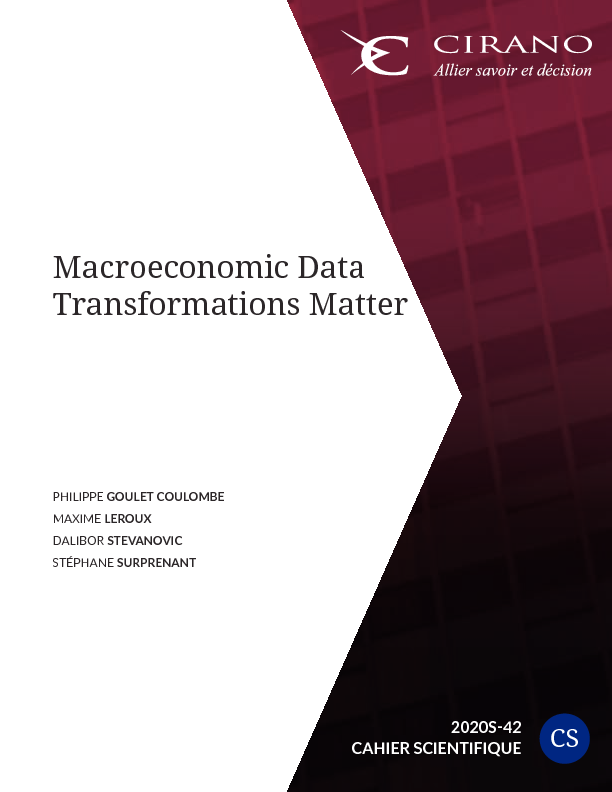Macroeconomic Data Transformations Matter
From a purely predictive standpoint, rotating the predictors’ matrix in a low-dimensional linear regression setup does not alter predictions. However, when the forecasting technology either uses shrinkage or is non-linear, it does. This is precisely the fabric of the machine learning (ML) macroeconomic forecasting environment. Pre-processing of the data translates to an alteration of the regularization – explicit or implicit – embedded in ML algorithms. We review old transformations and propose new ones, then empirically evaluate their merits in a substantial pseudo-out-sample exercise. It is found that traditional factors should almost always be included in the feature matrix and moving average rotations of the data can provide important gains for various forecasting targets.




